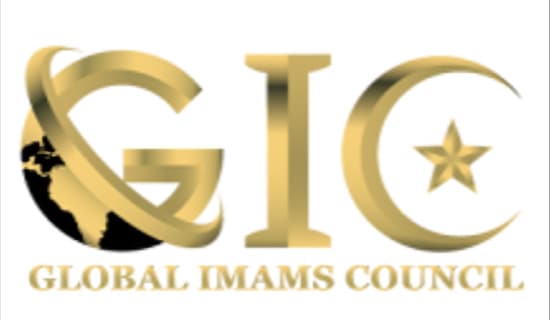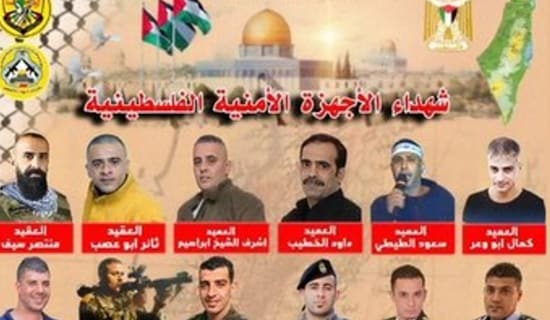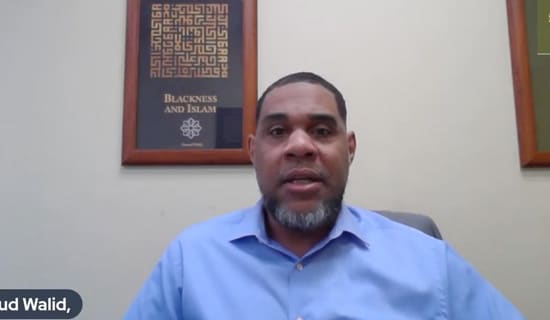Reactions in the Arab press to the recent terror attacks in Canada[1] were very few, compared to the reactions in the Western media, which addressed the incidents extensively. Articles that did refer to the attacks stressed that terror is a global problem, not a Muslim one, since the Islamic State (ISIS) – which many believe inspired the attacks – has gained popularity across the world and is attracting young people from many countries. They also claimed that the attackers were not jihadis but were mentally disturbed, and had carried out the attacks out of personal, not religious, motivations.
At the same time, some of the articles pointed out that the Canada is a peaceful country that has always welcomed immigrants and sheltered asylum seekers, and decried the fact that the attackers had repaid its kindness with terror.
The following are excerpts from three articles.

A police officer secures the scene of the shooting on Parliament Hill in Ottawa (Image: AP)
Saudi Journalist: The Canada Terror Attacks – Are Global Problem, Not Just A Muslim One
In his column in the London-based Saudi daily Al-Sharq Al-Awsat, journalist Mashari Al-Dhaidi wrote that Michael Zehaf-Bibeau had "turned himself into an ISIS fighter," but added that ISIS attracts young people from all over the world, and therefore it represents a global problem, like drugs, not a problem confined to Muslims. He wrote: "A young Canadian named Michael Zehaf-Bibeau (32) carried out a terrorist attack and killed a soldier in Ottawa, and then stormed the parliament building and was killed in a shootout with police. The young man is half Canadian. His mother is Canadian and his father is Libyan...
"We see a man under stress and in a crisis who wanted to ease his anguish by turning himself into an ISIS fighter. Meaning that he was externalizing his personal and existential distress with a public action that he erroneously believed would make him happy with himself and restore his self-esteem, and would make his ummah proud.
"He is totally ignorant of the religion and the language of the religion – Arabic. This is also true for the two Austrian teenagers, the two British Somali girls [who left their homes and traveled to Syria]... For these ignorant teenagers, ISIS has become a fantasy game that quenches their thirst for excitement and danger, like video games. This is what ISIS tries to focus on with its English-language magazine Dabiq.
"This is a phenomenon worthy of examining. Why is it that the world's teenagers and those in crisis become immersed in this ISIS carnival?... ISIS is too big [an issue] to be reduced to the Islamic religious aspect. It is a worldwide phenomenon and a global trend. It is similar to the phenomenon of narcotics. Meaning that if, at some point [in history], a movement emerged, [perhaps] in Latin America, that carried out terrorism under some global pretext or other, we would find young men and women from around the world supporting it. What I am saying is that, in addition to the religious interpretation regarding Muslims, there is another interpretation that must be thoroughly examined regarding the 'global' ISIS, for the ISIS is becoming a global and international crisis affecting all societies, and it must be examined from all angles. This is not just about Muslims...
"How does one explain a young man or woman – who do not know Arabic and lack any serious knowledge of Islam and its history, let alone of religious law and the caliphate – crossing oceans and skies to join ISIS?! Eliminating ISIS requires understanding this global [phenomenon] of rushing to take the ISIS bait. This is an issue that concerns the entire world... not just the Muslims!"[2]
Kuwaiti Writer: The Media Hurried To Proclaim That The Terrorists Were Extremist Muslims
SUPPORT OUR WORK

In an article in the Kuwaiti daily Al-Jarida, writer and journalist Nasser Al-Zafiri criticized the Western media's coverage of the attacks. He said that it had hurried to proclaim that the attackers were extremist Muslims, and only later acknowledged that the facts were more complex, after the image of the attackers as jihadis was already firmly fixed in the mind of the public. He wrote: "Several days ago, a French Canadian ran down two Canadian soldiers in uniform, one of whom [later] died of his wounds. The police punished the criminal by shooting him to death, so that the circumstances of the incident died with him. The reports circulated by the news agencies and news channels [following the incident] implied that the man had become radicalized, without saying explicitly that he had become a radical Muslim. The man had a French name without any Arabic or Islamic characteristics. He was wanted [by the police] and banned from leaving [Canada] because he was dangerous... But [the news coverage] conditioned people's minds to believe in the [man's] 'shift to extremism.'
"The incident that occurred soon after, last Wednesday [October 22, 2014], found people's minds already conditioned to accept the notion of extremism. Another French Canadian – I do not know if this is a coincidence or not – attacked and shot an unarmed soldier who was guarding the War Museum. Then he broke into the parliament in the middle of a session and fired a hunting rifle, until the security officer shot him dead, so that his reasons for doing what he did again died with him.
"Even before the investigation into the man's identity commenced, the television channels reported that the man who had broken into the session was a jihadist, and [assured the viewers] that the prime minister was safe and that nobody at the parliament had been hurt. The Muslims in Canada began to feel concern, fearing furious reactions from the Other – the white man. Analyses began to appear that supported the prime minister's [decision] to join the war [against ISIS in Iraq]...
"[Subsequent] reports gradually took a softer tone than the initial one. [The second report said] that the shooter was a French [Canadian] named Michael Zehaf-Bibeau, the son of a French [Canadian] mother and a Libyan father; photos of him posted on Twitter showed him wearing a keffiyeh and carrying a machine gun, not a hunting rifle... He was a Christian who converted [to Islam], since his father divorced his mother when he was eight [sic] and he was brought up as a Christian. The third report was even softer, mentioning that the accused had a [criminal] record, and that his name was [actually] Michael Bibeau Hall, without the Arab name [Zehaf]... [It was also mentioned that] he had a record of armed robbery and drug abuse. He was wanted [by the police], and he came to the capital to apply for a passport, but was denied... He had a neurological disorder. The last part of the report mentioned that [the shooter] had converted six months earlier, and had planned to travel to Syria. That is all that remained of the [implications of] the first report. He was a Muslim for [only] six months. He fasted during Ramadan only once in his life. He did not speak Arabic well enough to understand even a single [Koranic] verse, [yet] he dreamt of being martyred in Syria.
"In the coming days, analysts will surely refute these news reports and question their credibility. But the impression left by the [first] report in the public's [mind] will not change one whit, and the notion of the extremist jihadist Michael Bibeau will remain etched on the faces of all the Muslims in Canada. We have enough [Muslim] lunatics of our own, so don't palm off your own lunatics as Muslims."[3]
Lebanese Journalist: The Canada Attacks Were A Depraved Crime Against A Wonderful Country
Samir Atallah, a Lebanese columnist for Al-Sharq Al-Awsat, decried the attacks, describing them as heinous crimes against a wonderful country that is tolerant towards its minorities and goes out of its way to help asylum seekers.
"In my series of articles on vacation towns I wrote about my close relationship with Canada. A relationship as pure as Canadian snow and as uncomplicated as its residents... Ottawa was a large village nestled between lawns and trees, but it is also the capital of the second largest country [in the world]. This 'village' [also] manages the affairs of the territories, which include the Eskimo villages as well.
"One of the residents of this country... is from South Lebanon. Canada respected him [so much that] it appointed him senator. After him the Lebanese [Mac] Harb won the parliamentary elections and later became a senator.
"...[From all this], we can understand how kindhearted this massive country is. During the Lebanon war, immigration officials stood [outside] planes at the airports loudly calling: 'Are there any asylum seekers?' After Somalia disintegrated, the same officials loudly asked: 'Are there any Somalis seeking asylum?'
"There is no [discrimination on the basis of] religion, race, or color. This is a dreamy country... The [former] governor general was a beautiful woman of Chinese origin who told the famous BBC reporter Anthony Sampson that the dress she was wearing was given to her as a gift by her husband 30 years ago. The same high-ranking woman used to eat lunch in my brother Munir's restaurant almost every day. He tried in vain [to get] her to agree [to eat] at his expense one time. She would laughingly respond: 'You Lebanese, trying to bribe the governor general!' The cost of lunch was usually around 5 dollars. After her, a Haitian woman was appointed governor general.
"The state institutions are on a small plot of land on a hill, which is adorned by the parliament building with its pistachio-colored roofs. Not a month goes by without parliament approving a law to improve [the economic] state of the common people. The Canadian parliament has approved so many laws that there are no longer any demands that anyone could think to make – even in Sweden, which served as the model for Canada's government.
"Members of [the Canadian] parliament speak softly, and the ministers respond even softer, like the peace and quiet of Ottawa. Ottawa was terrified for the first time in its history the day before yesterday [October 22]. The horrific nightmare knocked on the doors of this dreamy bastion. Killers brought to the seat of parliament an abomination that no one could envision: racism, death, and murder. This is how they repaid the country whose immigration officials came to the airport to ask: 'Are there any asylum seekers?'"[4]
Endnotes:
[1] On October 20, 2014, Canadian citizen Martin Couture-Rouleau ran down two Canadian soldiers near Montreal, one of whom later died of his wounds. Two days later, another Canadian, Michael Zehaf-Bibeau, who had a criminal record, fatally shot a Canadian soldier on ceremonial guard duty outside the Canadian National War Memorial. Following this he tried to penetrate the nearby parliament and was killed in a gunfight with security personnel inside the building.
[2] Al-Sharq Al-Awsat (London), October 24, 2014.
[3] Al-Jarida (Kuwait), October 24, 2014.
[4] Al-Sharq Al-Awsat (London), October 24, 2014.




